- Council of the Great City Schools
- Student Leaders Say It’s Time to Rewrite History Lessons at Town Hall
Digital Urban Educator - November/December 2020
Page Navigation
- Council Releases Education Recommendations to the Incoming Biden Administration
- NYC and Boston School Districts Change School Admission Policies
- Student Leaders Say It’s Time to Rewrite History Lessons at Town Hall
- Laura Bush, and Julián Castro Address Council at Virtual Fall Conference
- Pulitzer-Prize Columnist Thomas Friedman Participates in Panel Discussion on Education
- Dallas Superintendent Recognized as Urban Superintendent of the Year
- Council Chair O’Neill: ‘Let’s Learn Better Together’
- Detroit and Buffalo Leaders Tenure Extended; Denver Superintendent Headed to Dallas
- Voters Decide on Education Ballot Issues
- Big-City Schools Named Among the Best Urban Schools in the Nation
- Two Urban Principals Honored Nationally
- 64th Annual Fall Conference Pictorial
Student Leaders Say It’s Time to Rewrite History Lessons at Town Hall
-
Twin ideas dominated the discussion among student leaders speaking to a virtual audience of urban school educators at the Town Hall session of the 64th Annual Fall Conference: In their view, it’s long past time to tell the full, unvarnished history of the United States, and it’s time to commit to candid, fact-based discussions of social justice issues.
They don’t want feel-good accounts of pilgrims encountering Native Americans or lessons that minimize the contributions of African Americans and other historic figures of non-White ancestry. That opinion was voiced by multiple speakers – all of them high school students in urban schools – at the Town Hall, moderated by AJ Crabill, the Council of the Great City Schools’ director of governance.
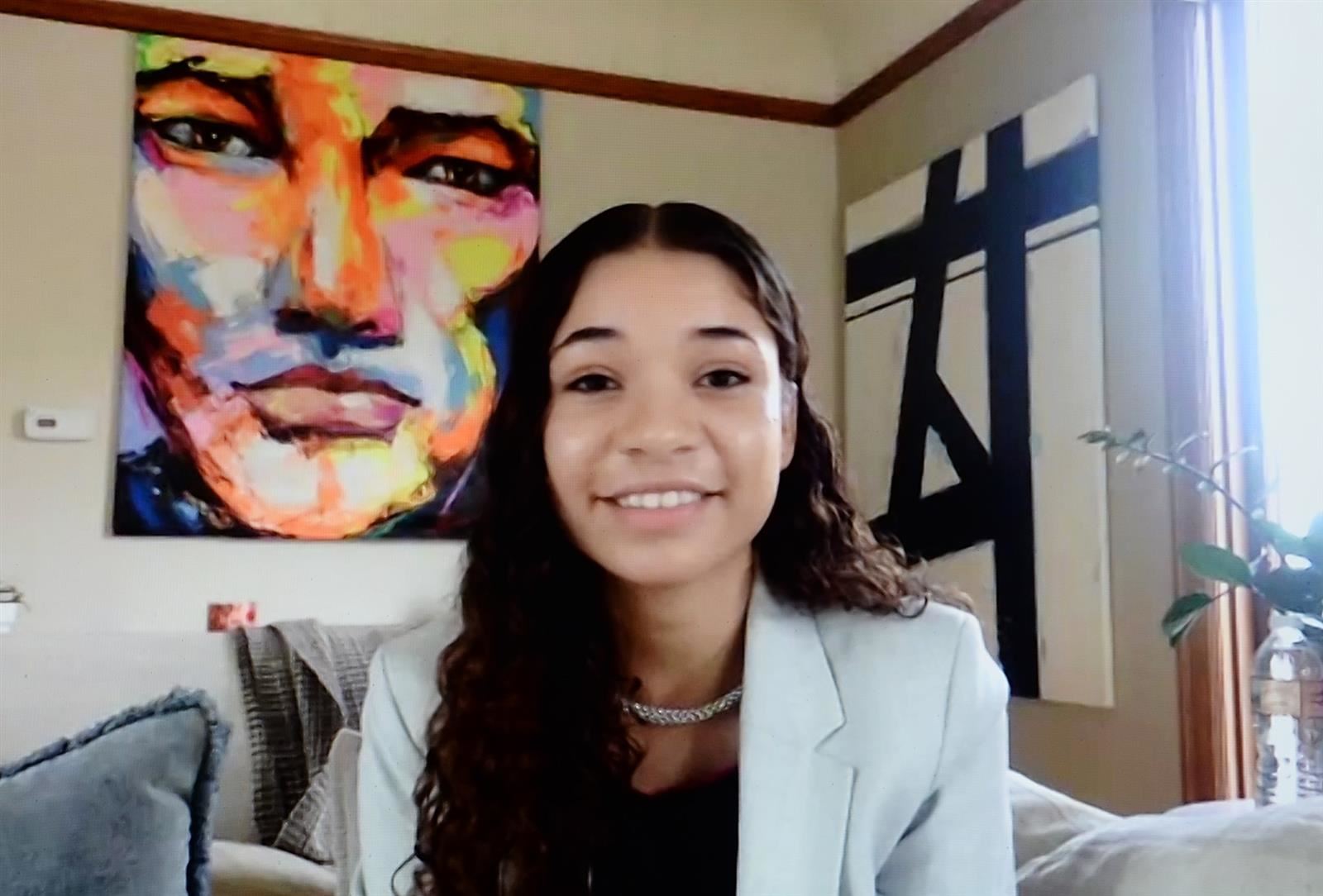
“I shouldn’t have to wait until I’m a senior in high school to start learning what really happened,” said Carmella Thomas, a student in Oregon’s Portland Public Schools. “I want us to rewrite the textbooks. Let’s not give only one narrative. We need to open more perspectives to kids – and at a younger age.”
Simone’ Simmons, a junior from Cincinnati Public Schools, agreed, saying courses on the ethnic makeup of the country should be required, not optional.
“White people aren't the only people--they didn't create a miracle by themselves. It was the ethnic people, they built it from the ground up. They helped build all these things that make our world today. And we need to learn about these things,” Simmons said.
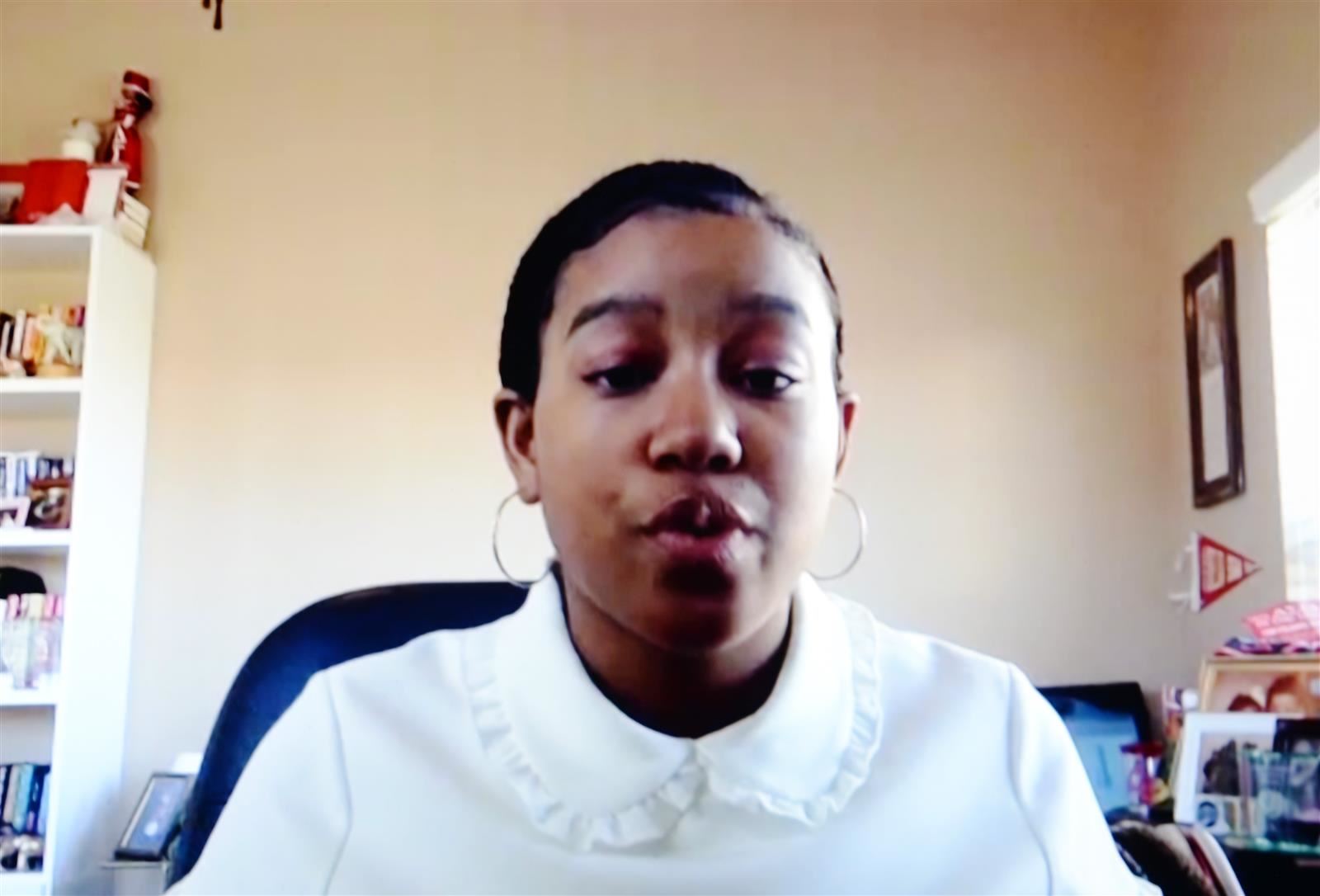
America, she said, “is not just one race, it’s a big group of diverse people [who] make up America. And I feel like I’ve only really learned about the white part and we never really dip into the other parts of history.”
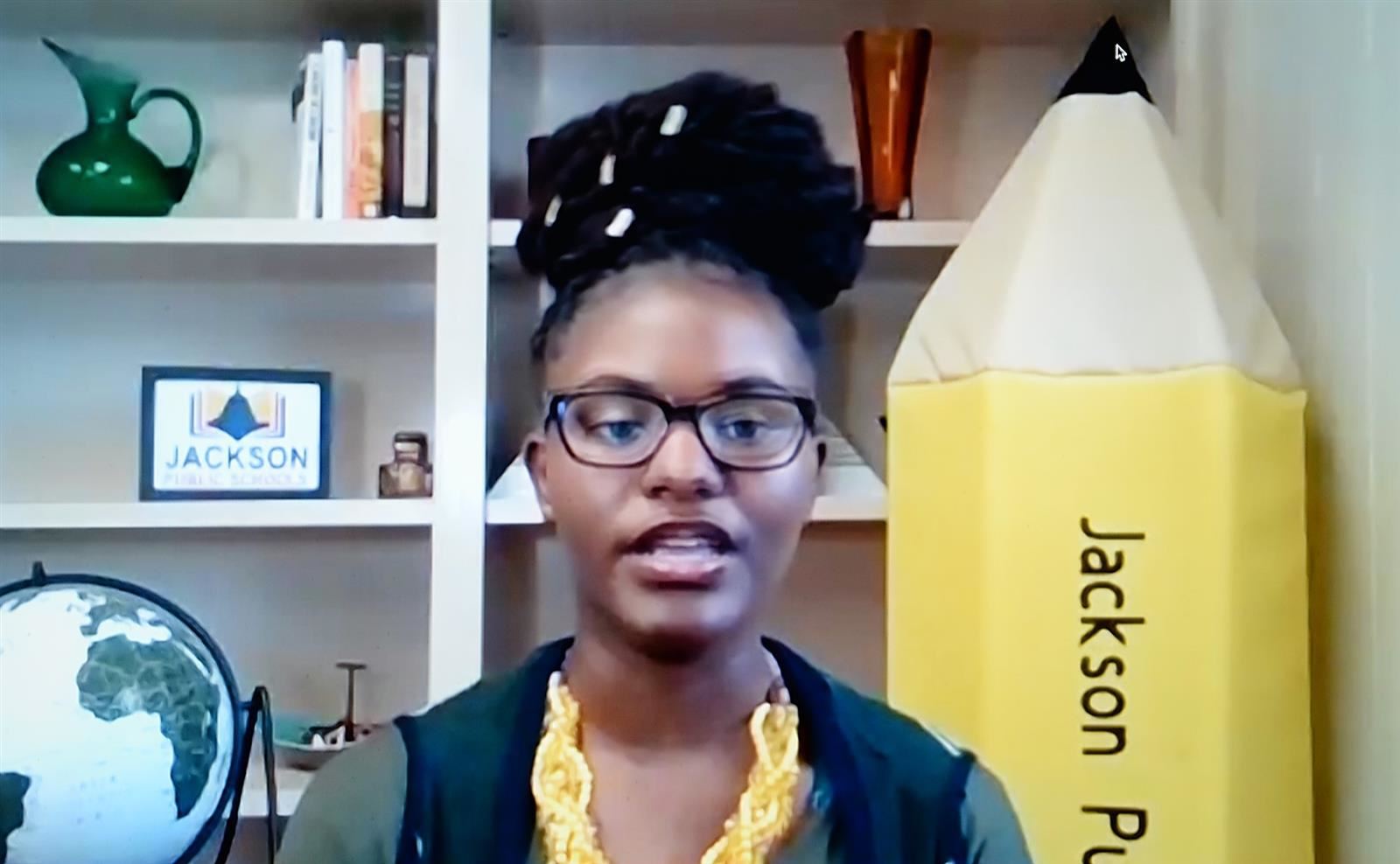 Tyra Patterson, a senior in Mississippi’s Jackson Public Schools, pushed for educators to tackle controversial topics.
Tyra Patterson, a senior in Mississippi’s Jackson Public Schools, pushed for educators to tackle controversial topics. “They need to talk to us,” Patterson said. “The world we are coming into is unforgiving and we need to be exposed to what’s going down.”
Khymani James, a senior in Boston Public Schools, said Black students at his school are networking with peers at other schools “as a way to communicate but also to educate our White counterparts … to understand White privilege and what they can do to disassemble and chip away at systemic oppression.”
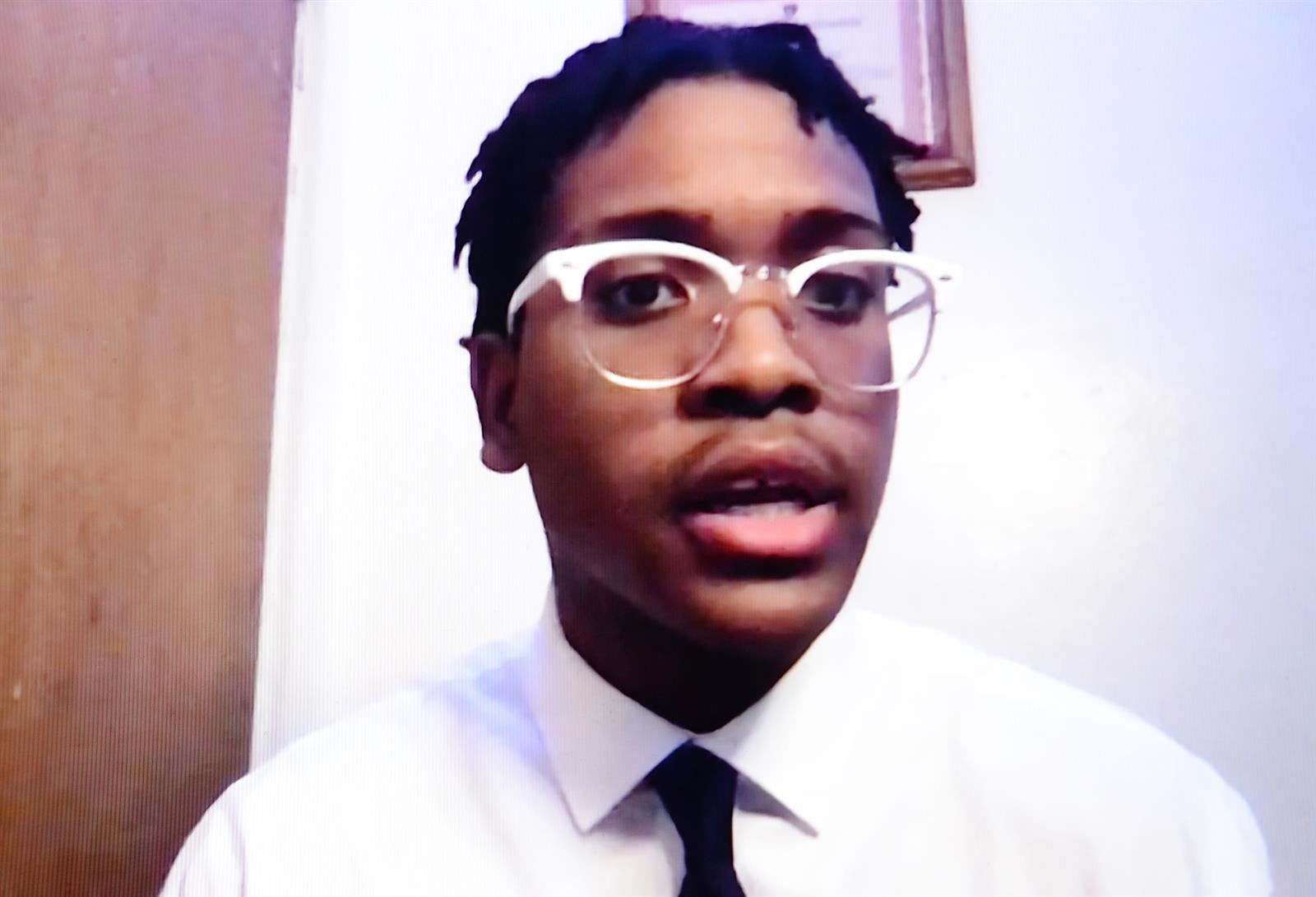 James said “students are telling their teachers, Hey, let’s talk about this in class-- let’s connect these deeply political and polarizing society issues to the content that we’re learning in our classrooms so that when we’re out there in the real world we can take our academic learning and apply it to create actual solutions and systemic change.”
James said “students are telling their teachers, Hey, let’s talk about this in class-- let’s connect these deeply political and polarizing society issues to the content that we’re learning in our classrooms so that when we’re out there in the real world we can take our academic learning and apply it to create actual solutions and systemic change.”Gabriel Schuhl, a student from North Carolina’s Charlotte-Mecklenburg Schools, said he as a White person has spent time “just being able to identify myself as a privileged person, being able to reeducate myself and listen to stories of people of color as the first step towards doing anything systemic.”
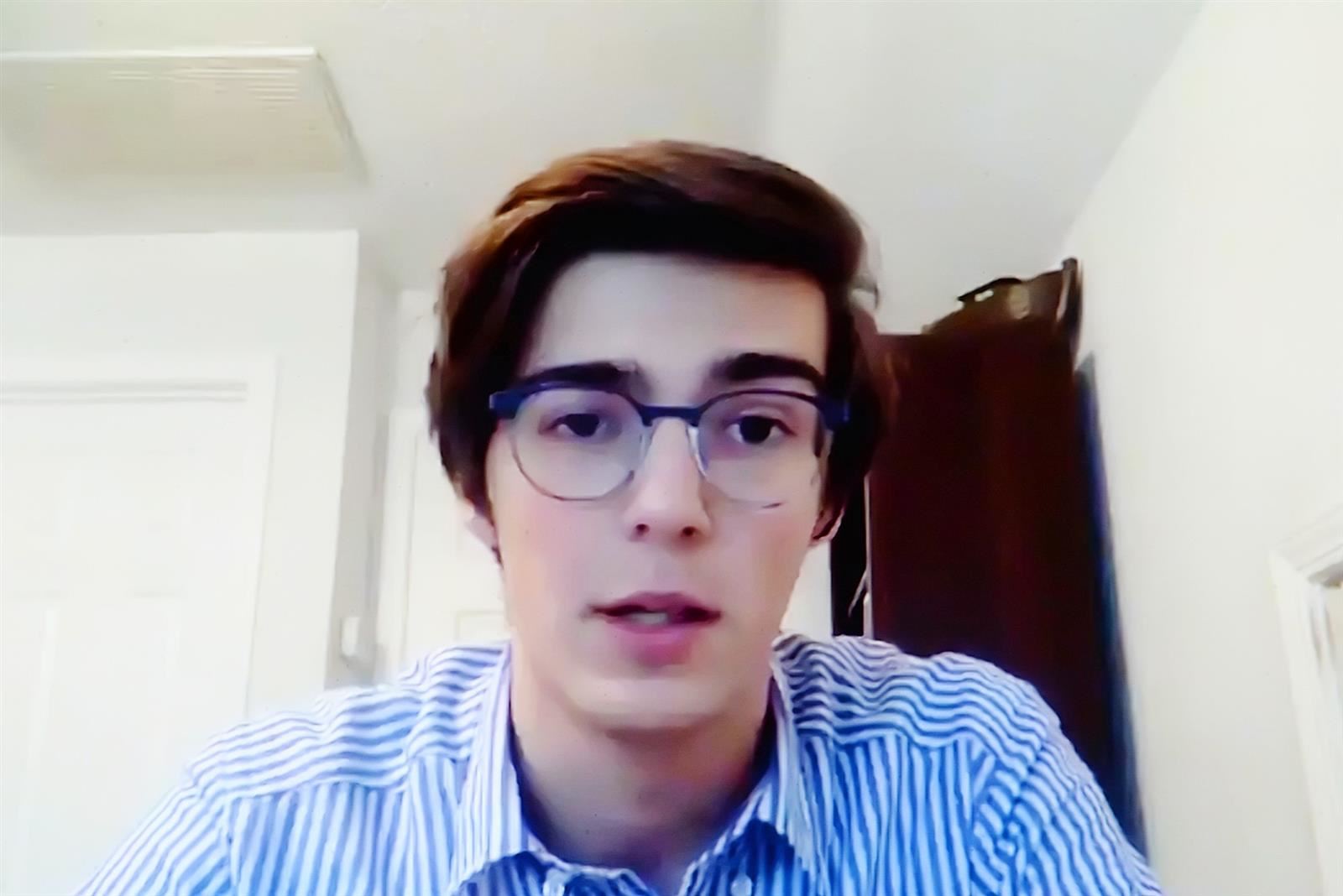
Schuhl and others argued that educators should try hard to reframe social justice issues not as “a topic that’s controversial or political” but as a human rights concern.
“That’s something that should not be polarized, should not be politicized.”
In Charlotte, he said, there’s been an effort “to form connections across formerly segregated communities, culturally segregated communities [with] outreach between schools and events that can highlight cultures and at the same time confront oppressive structures.”
Charlotte schools also began 30-minute “social learning times” once a week to talk about issues including, institutional racism and intolerance, he said.
Thomas, from Portland, noted that her district has a program called Race Forward held four times a year for talks that center on race issues but she lamented that “tons of staff” skip the meetings. “If staff and administration were to step up and push for more race-centered talks and show students that they are their allies and that they have our backs, it would definitely strengthen student-staff relationships.”
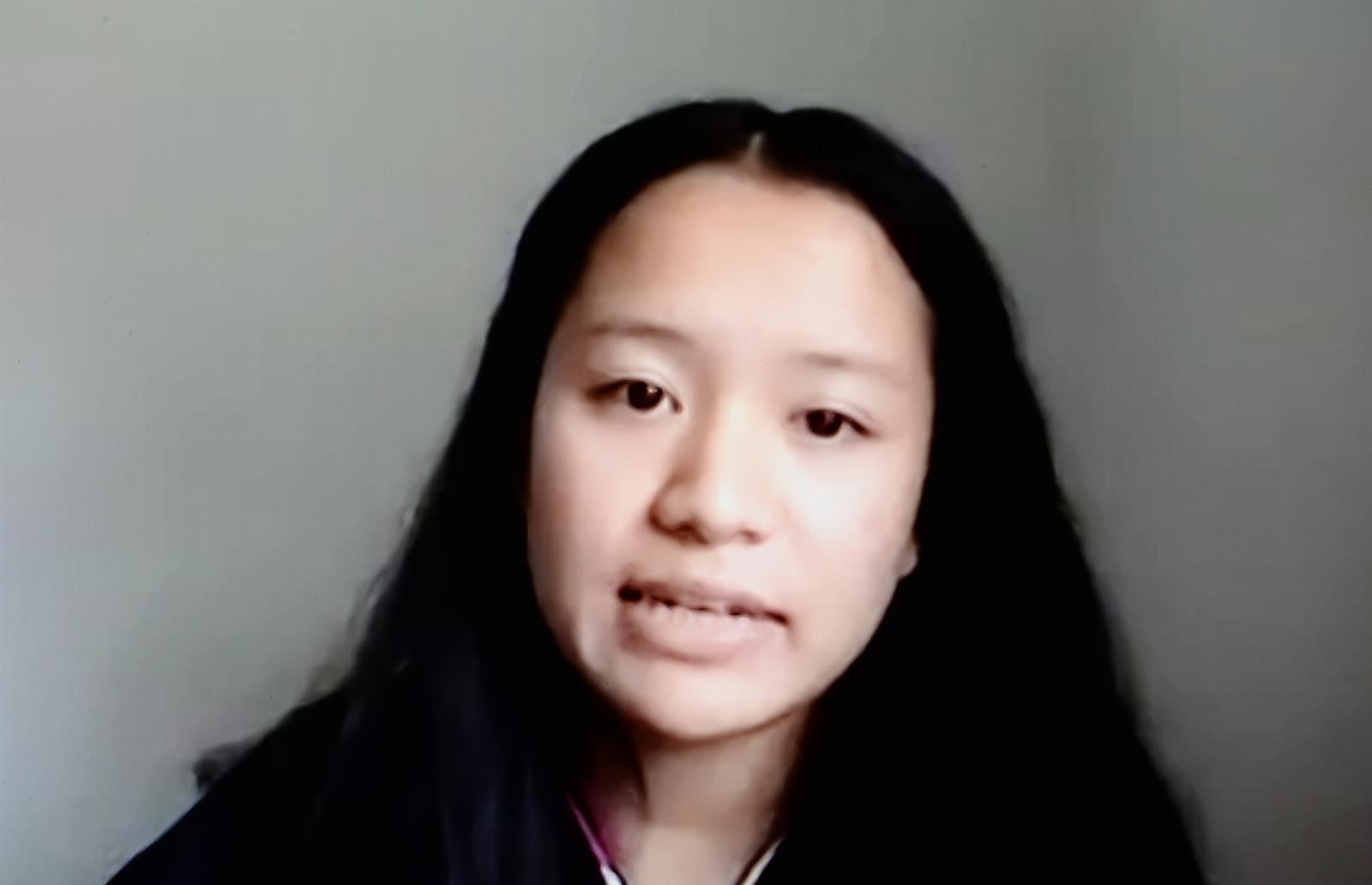
Students described their own efforts at activism. Paw Thlay Wah is a senior in Nebraska’s Omaha Public Schools who was born in a Thailand refugee camp to parents originally from Myanmar. She said she is using social media in her native language, “to push my community to become more aware of racism because the more we can be aware of what’s going on, the more we can help the community around us and also ourselves.”
Jackson’s Patterson commented that “a lot of people want to stay away from actually having a conversation about race and differences” but youth in her school created an empowerment group to educate black people on the challenges they face and to learn about other races and their perspectives.
“We tend to, for lack of a better word, prioritize our own race before others so I feel that learning about diversity is much needed in the educational system for our youth,” she said, adding that “we need to talk about mental health -- a lot of my classmates, my peers, are in distress from seeing what’s going on.”
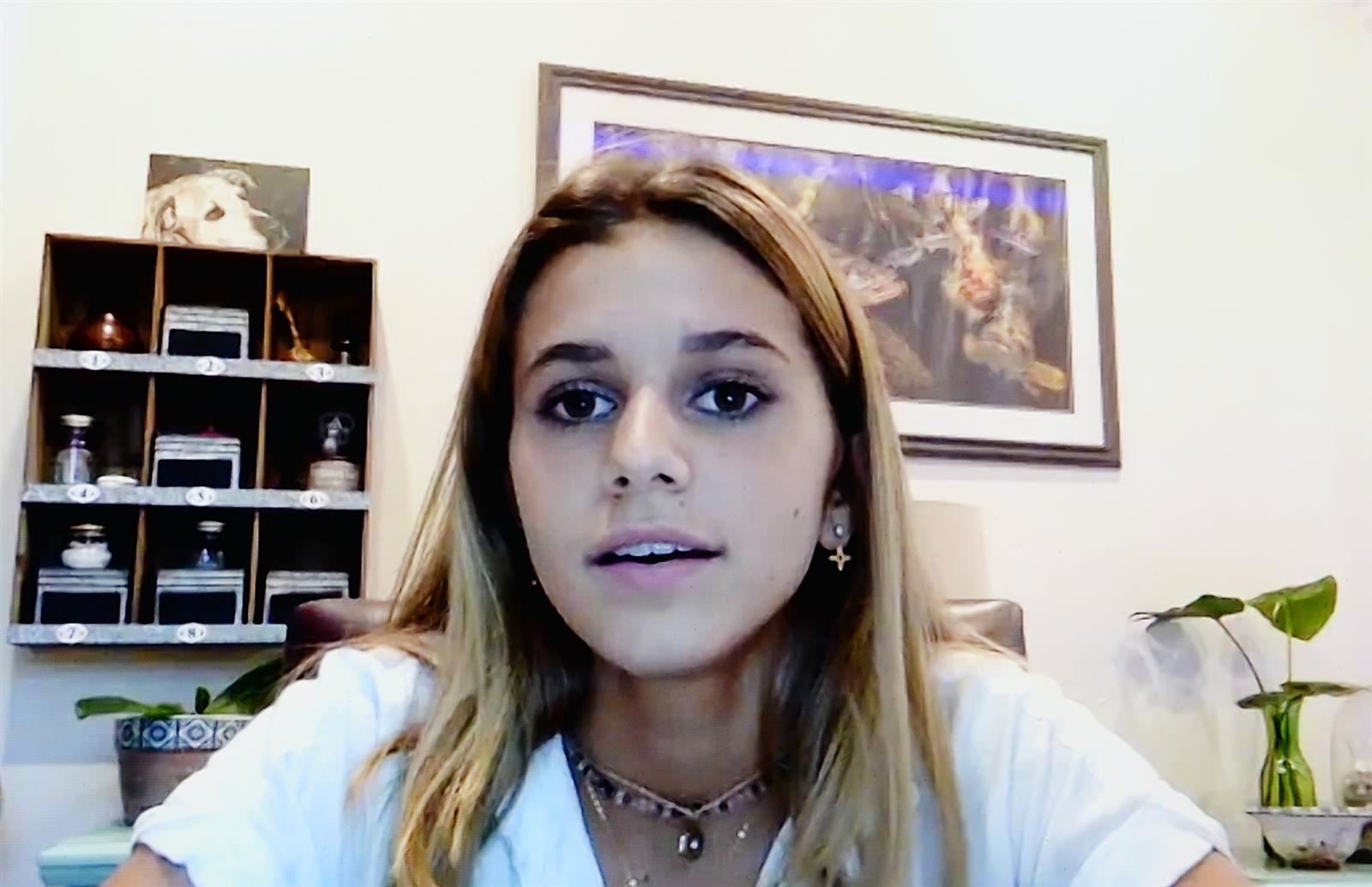 Jemma Currie, a student in Florida’s School District of Palm Beach County and an immigrant from South Africa, described losing friends for speaking out about racism and inequality.
Jemma Currie, a student in Florida’s School District of Palm Beach County and an immigrant from South Africa, described losing friends for speaking out about racism and inequality. Said Currie: “Schools should start having mandated classes – even a standalone social justice class – where students can learn about other cultures, other ethnic backgrounds and understand how to respect people from different ethnicities.”
Keylisha Diaz, a student from the School District of Philadelphia, endorsed Currie’s view, saying, “We are severely undereducated
 nowadays. We need to stop seeing racism and inequity as such a controversial thing because at the end of the day we are all a community, we are all diverse, we all come from different places in this world.”
nowadays. We need to stop seeing racism and inequity as such a controversial thing because at the end of the day we are all a community, we are all diverse, we all come from different places in this world.” At her school, she said, “It's amazing to see Hispanics, Black people, Asian people, etc., from all diverse cultures coming together to talk about certain topics such as gun violence, racism and equality, gay rights and the LGBT community. It is so, so important, so therefore I ask our leaders to please push these topics more and especially, I just want to mention, even though it doesn't go directly into this topic, mental health.”
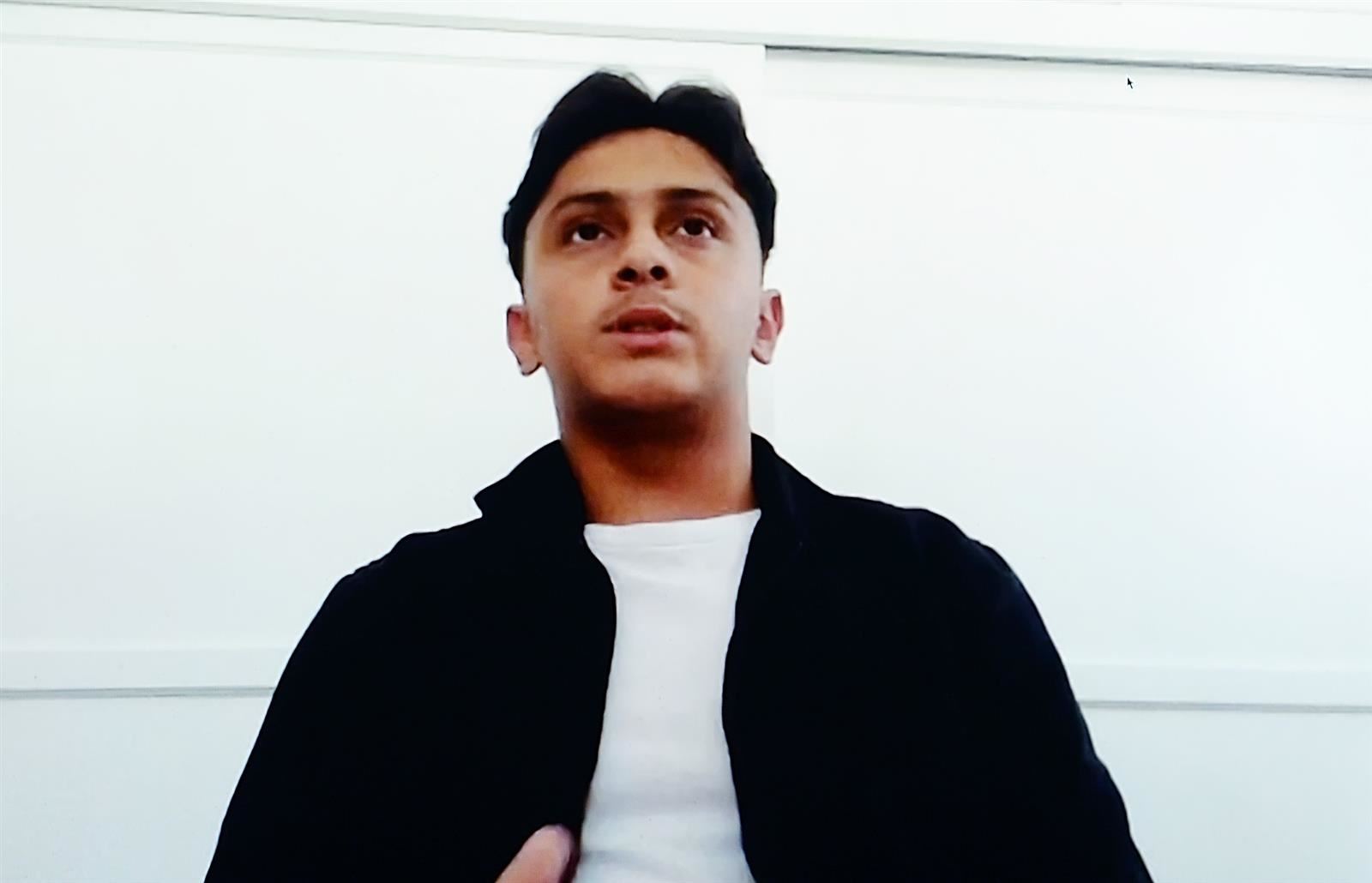
Glenn Perez Rodriguez, a junior in California’s Long Beach Unified School District, urged educators to give students a bigger voice, calling it “a really large opportunity to see how students might perceive the things the district is doing, whether it’s good or bad. And once you do this, I feel like it opens doors so that students can have a much greater future.”
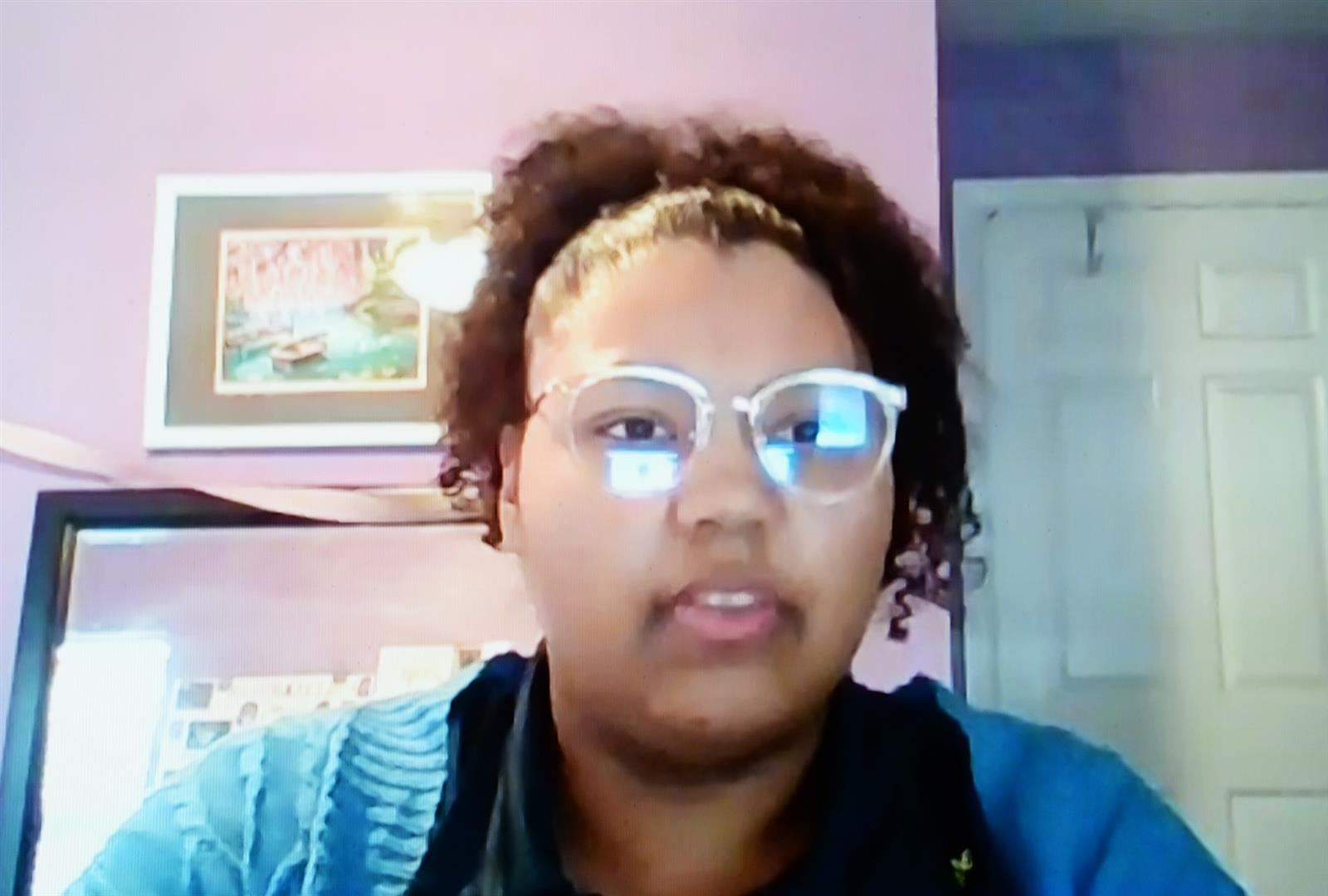 Alexa Butler, a senior with California’s Fresno Unified School District, was emphatic in calling for open, blunt discussions.
Alexa Butler, a senior with California’s Fresno Unified School District, was emphatic in calling for open, blunt discussions.“If we’re going to get anywhere with equity, inclusion and diversity, we need to start talking about these hard topics but now it’s not talked about in any way – not police brutality, not voter suppression, not civil rights, not systemic racism. It’s unaddressed and ignored – even when it’s overtly happening in the classroom,” Butler said.
“And I'm not gonna lie, it's gonna be hard. It's not gonna happen overnight. But if we start addressing these issues, it's going to help us so much,” she said, speaking directly to the audience.
“So, I'm challenging all educators who are on this call, Take that first step and talk about tough issues. I believe in all of you, and I support you guys 100 percent. But we have to start somewhere, if we're planning to see change in this world. We’re the next generation, we have to be affirmed, and that has to come from the adults.”
Media Contact:
Contact Name
Contact@email.com
(000) 000-0000
Contact Name
Contact@email.com
(000) 000-0000
Contact Name
Contact@email.com
(000) 000-0000
Media Contact:
Contact Name
Contact@email.com
(000) 000-0000
Contact Name
Contact@email.com
(000) 000-0000
Contact Name
Contact@email.com
(000) 000-0000


